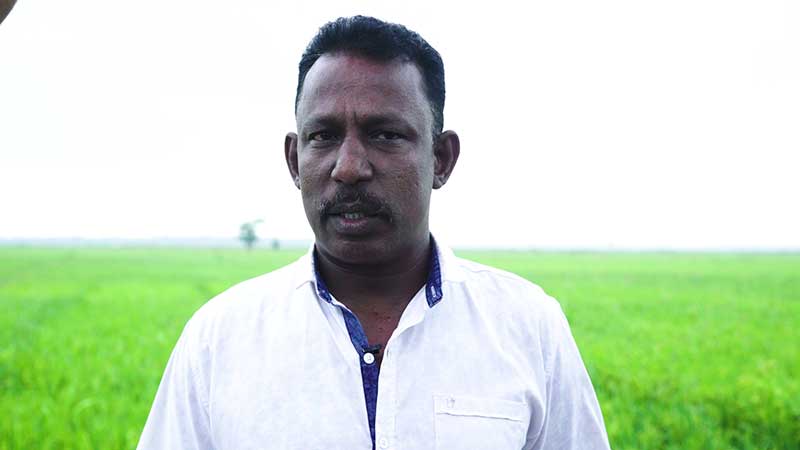
Crysbro spearheads irrigation development project to elevate farming practices in Kantale

Sri Lanka’s most trusted poultry producer Crysbro, recently spearheaded the development of a water irrigation system to strengthen and elevate farming practices in the Suriyapura and Helambayaya villages in the Kantale region. Launched in association with the Department of Mahaweli Development and Environment and The Ministry of Irrigation, Crysbro’s latest initiative aims to alleviate rural poverty in these villages deeply affected by constant drought and the 30-year long civil war in Sri Lanka.
The new irrigation system provides these two villages with a permanent source of water to nourish their farming practices all year long, allowing them to cultivate during both the Yala and Maha seasons; a previously unknown reality due to constant droughts. Although the Mahaweli River flows past this region, villagers were unable to construct a small canal as close as 4 km away, which is the ideal location for a primary water source for their cultivations. While several attempts were made to inform political authorities regarding their critical requirement, none have proven to be successful.
Commenting on the initiative, Chairman – Farmer’s Association of Kantale Helambayaya G.G. Bandula, “Although our farmers have made numerous attempts to cultivate during the Yala and Maha seasons after the war, we were not successful due to insufficient access to a reliable water source. Due to the unpredictable nature of rains in the region, we have long suffered from constant droughts for most part of the year, which heavily incapacitated our cultivation. The answer to this predicament was a permanent water source in the form of a canal dug just 4 km away from the villages that is fed by the Mahaweli River. We took various measures to make this project a success, but in the end, it was with Crysbro’s vision that we were able to make our long – cherished dream a reality.”
The new canal was built upon the fervent request of the Helambayaya Farmer’s Association, and was given technical support and approval by the department of Mahaweli Development and Ministry of Irrigation. Crysbro also provided state-of-the-art excavating machinery and earth moving equipment free of charge, towards the success of this project.
“As a fully home-grown company, Crysbro has always been at the forefront of spearheading initiatives that uplift the rural population and alleviate rural poverty. Over the years, our initiatives have made a significant contribution to elevate agricultural infrastructure in the country as well as to create new entrepreneurs within these communities thereby bringing employment opportunities and a steady source of income for a large number of families. In many areas in Kantale too which was a region deeply impacted by the Civil War, we managed to embolden and elevate the living standards of communities by offering entrepreneurship opportunities and improving their agricultural infrastructure to conduct cultivation operations better and faster,” Crysbro Senior Marketing Manager, Amores Sellar said.
As a major player in this swiftly progressing industry, Crysbro has so far made a significant contribution to rural economic and social empowerment through its flagship CSR projects: Diri Saviya, Praja Aruna, Sisu Diriya, Suwa Shakthi and Haritha Sathkara. The company also operates a large-scale farm in Kantale, which is used for seed paddy production. This along with numerous other poultry operations and maize farms across the island, has created thousands of employment opportunities which has ultimately contributed greatly to the alleviation of poverty in rural communities in Sri Lanka.
Established in 1972 with just 100 chicks and a deep desire to be a market leader in quality and innovation, Crysbro has emerged as Sri Lanka’s first and most sophisticated, fully vertically-integrated poultry producer. Its operations span grandparent and parent farms, hatcheries, broiler farms and feed mills. This thriving ‘Farm-to-Fork’ concept has formed the core of its success. In turn, it has yielded unprecedented benefit for numerous stakeholders including direct and indirect employees, outgrowers, domestic maize farmers and ultimately Sri Lankan consumers.


